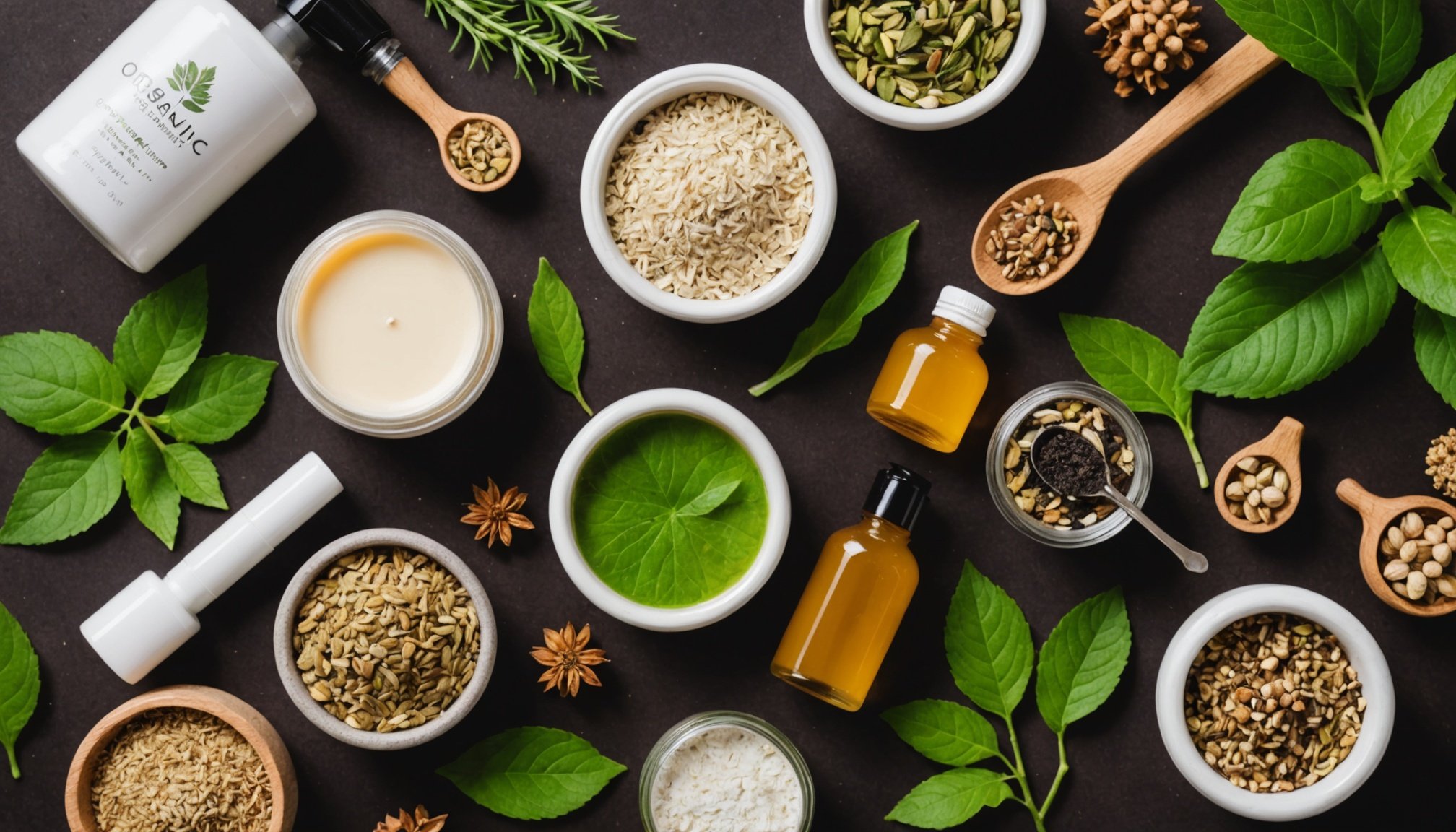Overview of UK Product Safety Regulations for Organic Skincare Brands
Understanding UK product safety regulations is crucial for organic skincare brands aiming to ensure compliance and consumer trust. The legal framework governing skincare products in the UK is established under the General Product Safety Regulations 2005, which demand that all products must be safe for consumer use. Organic skincare brands must also comply with specific regulations such as the Cosmetic Products Enforcement Regulations 2013, which lay down guidelines about ingredients and labelling.
The compliance journey for these brands involves deep knowledge about certain specificities. Emphasis is placed on the importance of understanding specific regulations applicable to organic brands. This includes proving the organic nature of ingredients and adhering to labelling standards that reflect this status transparently.
Also to discover : Crucial insurance policies your uk home renovation business must have for success
Several agencies play a crucial role in enforcement. These include the Office for Product Safety and Standards (OPSS) and local Trading Standards offices, which conduct regular compliance checks. Their involvement ensures that products are thoroughly evaluated and meet the necessary safety standards before reaching consumers. For organic brands, maintaining compliance is not just a legal requirement but a commitment to consumer safety and product integrity.
Step-by-Step Compliance Strategies
Embarking on the journey of compliance within the skincare industry requires meticulous planning and strategy. Adopting compliance strategies is crucial to meet regulatory standards and ensure product safety.
Additional reading : Ultimate blueprint for kickstarting your fitness tech venture in the uk: key strategies for achieving success
Initial Assessment and Documentation
Begin with a thorough initial assessment of your product formulations. This involves examining each ingredient’s safety implications to ensure they align with existing regulations. To support this, maintain a comprehensive regulatory checklist to guide you through the documentation process. Document all safety assessments diligently, as comprehensive records are indispensable for regulatory approval and consumer trust.
Conducting Risk Assessments
Effective risk assessments are imperative in identifying potential hazards in product ingredients. Utilize established methodologies tailored for the skincare sector to quantify and mitigate these risks. Third-party testing and certification play a pivotal role, offering objective evaluations that bolster your compliance efforts.
Developing a Compliance Plan
Craft a robust compliance plan that outlines actionable steps to ensure ongoing adherence to regulations. This plan should include regular reviews and updates of your compliance strategies. Consulting with legal expertise can provide necessary guidance, ensuring your strategies are comprehensive and up-to-date. Employ a proactive approach, focusing on continuous improvement and market-specific requirements to maintain compliance seamlessly.
Best Practices for Product Safety Testing
To ensure skincare efficacy and product safety testing, employing recommended methods is crucial. Different testing approaches are suitable based on the product’s intended use and composition. Methods such as in-vitro testing, patch tests, and human clinical trials are often utilised. These are designed to identify potential irritants or allergens, ensuring products are safe for consumer use.
Importance of Dermatological Testing and Consumer Feedback
Dermatological testing plays a significant role in evaluating how skincare products interact with different skin types. This involves tests conducted under the supervision of dermatologists to monitor adverse reactions. Consumer feedback is equally essential as real-world usage can reveal unforeseen issues, enabling brands to adjust formulations accordingly. Combining these insights ensures products meet both safety and efficacy standards.
Guidelines for Selecting Accredited Laboratories
Selecting accredited laboratories is vital for reliable testing outcomes. Laboratories certified by recognised bodies adhere to stringent testing protocols and industry standards. When choosing a lab, consider their expertise in skincare efficacy assessments and their track record with similar products. Ensuring the lab’s facilities and practices are up to date with the latest scientific developments helps maintain compliance and uphold safety norms.
Labeling Requirements for Organic Skincare Products
When it comes to labeling regulations for organic skincare products, precise ingredient disclosure is essential. These labels serve not only as a touchstone for customer trust but also as a legal requirement to ensure safety and clarity in use.
Essential Label Elements
The labels of organic skincare products must contain certain mandatory information. This includes:
- A detailed list of ingredients in descending order by weight
- The product’s net content
- Manufacturer’s details
Labeling products as ‘organic’ or ‘natural’ involves specific considerations. For a product to claim it is 100% organic, all ingredients must be certified organic. If not entirely organic, products can claim ‘made with organic ingredients’ if a specific percentage aligns with regional guidelines.
Accurate and clear ingredient lists are paramount. Consumers often rely on these lists to ensure they receive the benefits promised and avoid allergens.
Claims and Marketing Considerations
Understanding permissible claims under UK law is crucial for brands. Claims such as ‘certified organic’ must be substantiated with appropriate certifications.
Marketing organically demands responsibility; misleading claims might lead to legal consequences and damage trust. Adhering to these guidelines helps maintain ethical marketing practices.
Common Pitfalls to Avoid
Navigating the world of organic skincare can be fraught with challenges, particularly when it comes to regulatory pitfalls and compliance errors. Many brands often face issues due to mislabeling or failing to meet industry standards for organic certification.
Consequences of non-compliance are severe, ranging from hefty fines to damaging the brand’s reputation. This can result in a loss of consumer trust and, ultimately, a decrease in sales. To mitigate these risks, it is crucial for brands to stay informed about changing regulations and ensure their products meet all necessary standards.
Moreover, ongoing training and education for staff should be a priority. Keeping the team updated on the latest compliance requirements helps in minimizing compliance errors and reinforces the company’s commitment to transparency and authenticity.
By understanding and addressing these common pitfalls, organic skincare brands can protect their reputation and ensure customer satisfaction. Investing in continuous staff education can prevent mistakes and foster customer loyalty. Ensuring accuracy in product labeling and certification is not merely a regulatory requirement but a cornerstone for sustainable business practices in the organic skincare industry.
Resources for Further Reading
Navigating the complex landscape of compliance resources is crucial for organic brands striving to meet industry standards. Several key industry publications and websites offer timely regulatory guidance updates. These include publications dedicated to organic product safety regulations, giving readers a comprehensive resource for staying informed.
Professional organizations and support networks play a vital role in providing regulatory guidance. Networking through groups focused on organic compliance issues allows brands to exchange insights and experiences, ensuring they are adhering to current standards.
Furthermore, links to governmental resources are invaluable. Access to governmental databases provides direct information on product safety regulations, ensuring that companies meet the necessary compliance requirements. Using these resources, organic brands can gain both the knowledge and the support they need to successfully navigate regulatory landscapes.
To sum up, staying informed through relevant compliance resources, including both industry-specific publications and professional organizations, is essential for maintaining regulatory compliance. By connecting with these supports, organic brands can confidently keep in step with evolving policies and standards.











